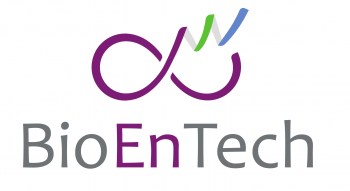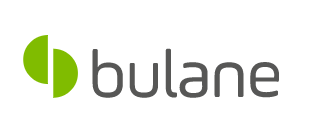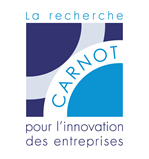Occitanie
Examples of partnerships with companies in the region
A micro-lab that facilitates digester monitoring and makes local methanation more profitable
Carnot 3BCAR - BioEnTechTo react quickly to the changes in pH that inhibit biogas plants, BioEnTech – with help from Carnot 3BCAR – has developed a simple titration application that delivers autonomous and accurate analyses of key inhibitors. SNAC optimises oversight and performance of all manner of digesters, especially in smaller-sized facilities.
A micro-lab that facilitates digester monitoring and makes local methanation more profitable
To react quickly to the changes in pH that inhibit biogas plants, BioEnTech – with help from Carnot 3BCAR – has developed a simple titration application that delivers autonomous and accurate analyses of key inhibitors. SNAC optimises oversight and performance of all manner of digesters, especially in smaller-sized facilities.
Supporting Innovation
Methanation plants that generate biogas from organic matter (local waste) play a key role in responding to environmental imperatives. The big challenge here is maintaining a constant optimal output of biogas despite variability in inputs. Naturally occurring anaerobic bacteria digest the material, however their activity depends on the acidity of the environment. Excess ammonia or volatile fatty acids will alter reactions and reduce the output of biogas, hence the need to quantify them. Until now, the plant operator had to send samples to a laboratory and – at best – results came back 24 hours later. Now, after a mere 10 minutes of straightforward manipulation, the SNAC micro-lab can deliver an accurate analysis of the main digestion inhibitors in less than two hours. Moreover, because SNAC is a connected lab, the Memo supervision system monitors process efficiency and makes suggestions for improvements in system oversight.
The client needs
BioEnTech, a mid-sized company created in 2013, was born out of the key conviction that digitised waste water and waste management will reduce the environmental impact and provide enhanced resource management.
To boost the profitability of biogas plants, measuring inhibitors during the process is absolutely essential and BioEnTech makes this possible with SNAC. By monitoring digesters, this micro-laboratory provides a unique solution that is flexible, easy to use, responsive and accurate. It is the fruit of a partnership initiated in 2013 with LBE Carnot 3BCAR based around a three-year CIFRE PhD agreement to develop a quick and simple method of analysis, combined with advanced modelling of the chemical processes involved in the titration of ammonia and volatile fatty acid concentrations. These research findings have been published internationally and are protected by a European patent.
The affordability of this disruptive innovation makes it accessible to medium-sized facilities, thus opening up a new market for BioEnTech which has sold some forty SNAC units and built a monitoring assistance service offering around the interpretation of the analyser's data.
Partnership
Carnot 3BCAR Institute harnesses multi-disciplinary skills in biotechnologies and green chemistry to develop innovative business solutions in bioenergies, biomolecules and biosourced materials. In particular, Laboratoire de Biotechnologies de l’Environnement (LBE) researches ways of recycling residues, waste and organic effluents from human activities and biomass. It uses its expertise in the reactions involved in the decomposition of organic matter to develop methods and tools for modelling these processes. It also has experimental facilities and a prototyping workshop.
LBE was therefore especially well placed to supervise the CIFRE doctoral student and to partner BioEnTech prior to the launch of SNAC, which required three development phases: research, prototyping and production roll out. Two initial prototypes were used to successfully test the product on site.
The partnership is continuing with the aim of making it even easier and faster to measure the recycling potential of a batch of organic matter in a quick, reliable and reproducible manner using the results of IR-SCAN.
Boilers are using less carbon for combustion thanks to hydrogen produced locally from water and electricity
Partnership Carnot ISIFoR - BulaneBulane’s Plug’In Hybrid dyomix® is a compact electrolyser that produces hydrogen using relatively little water and electricity. Thanks to Carnot ISIFoR’s Fluid Mechanics Institute (IMFT), this hydrogen can be used to make gas boilers greener.
Boilers are using less carbon for combustion thanks to hydrogen produced locally from water and electricity
Supporting Innovation
Bulane is recognised as a pioneer in clean energy. Its Dyomix® system, which provides a cost-effective, safe and efficient heat source for welding or soldering without using acetylene, has already sold approximately 1 to harness000 units. The key ingredient in this success story is a miniaturised mobile electrolyser that supplies hydrogen and oxygen using just electricity and a few litres of water. The company has harnessed its technology to fossil gas boilers (using natural gas or propane): the hydrogen produced is blended with the gas to make the fossil gases greener.
IMFT (Toulouse Fluid Mechanics Institute) – part of Carnot ISIFoR – and Bulane have shown that at least 20% of natural gas can be replaced in standard burners. Using clean electricity can therefore make gas heating greener and hooking up to a smart grid will allow electricity to be consumed on a timely basis and take another step towards providing low-carbon heating for buildings.
The client needs
Bulane is a dynamic start-up created in 2009 which has become an expert in the continuous production of hydrogen and oxygen. It has adopted a sustained innovation policy to boost the attractiveness of its ethical products and pursue its international growth.
Bulane is beginning to diversify by looking into how its "plug and play" system could be adapted to standard gas boilers. Heating housing complexes could become a low-carbon activity by converting millions of existing gas boilers into instruments that serve the energy transition, without actually having to change the equipment. The heat produced on site by the electrolyser that supplies the hydrogen will also be harnessed for even greater efficiency.
To successfully deploy this project, it is necessary to carefully control the introduction of hydrogen into the standard boiler burner and know to what level the “hybridization rate” (i.e., the rate of substitution of hydrogen for natural gas) may be stretched, while continuing to harness the benefits of the existing boilers, which combine optimal performance driven by R&D and mass production at acceptable cost.
Partnership
IMFT, which is part of Carnot ISIFoR, is specialised in combustion physics and equipped with special dedicated equipment (UV cameras, thermal resistance testers, etc.) to perform combustion diagnostic testing. Research focused on the feasibility of introducing hydrogen into existing natural gas boiler burners. First, it was necessary to carefully control the mix of the two gases (one very light and the other heavy) with very different diffusion properties. A homogeneous mixture is essential for avoiding unstable combustion (phenomena of self-extinguished flame, flame flashback, etc.) and pollutant emissions linked to the presence of very high temperature zones generating nitrogen oxides.
Once the feasibility had been ascertained, the partnership attacked the development phase. Combining the solution with Dyomix® technology needs to be carefully managed in order to supply hydrogen correctly and obtain a high hybridization rate, while maintaining optimal output from the standard boiler.
IMFT has enabled Bulane to unlock a new market and consolidate its status as an energy transition pioneer by hybridising fossil gas. Several million European gas boilers (which may or may not be connected to "town gas") represent a huge potential target.
French SME Bulane takes on the challenge of generating clean fuel for welding from water and electricity
Partnership Chimie Balard Cirimat Carnot Institute - BulaneThe Chimie Balard Cirimat Carnot Institute and Bulane have been setting standards with innovative developments using hydrogen flame since 2009. Their efforts have enabled the transformation of the underlying concept into a sales mechanism for industrial companies, small businesses and craftsmen alike.
French SME Bulane takes on the challenge of generating clean fuel for welding from water and electricity
The Chimie Balard Cirimat Carnot Institute and Bulane have been setting standards with innovative developments using hydrogen flame since 2009. Their efforts have enabled the transformation of the underlying concept into a sales mechanism for industrial companies, small businesses and craftsmen alike.
Supporting Innovation
Brazing and welding processes require a fossil fuel-based source of significant heat, such as acetylene. The storage of liquid fossils fuels in an industrial setting or within the context of artisan manufacturing imposes particular constraints. It is necessary to take into consideration the entire supply logistics chain, any potential risks and implications, as well as degradation products during production. Thanks to dyomix®, an intelligent gas generator, Bulane allows to eliminate all stages for the transport of fuels, by using an Oxy-hydrogen flame through real-time monitoring of water electrolysis. Indeed, the device only requires water and an electrical connection to operate. The result is a clean, performing flame, which effectively improves operator comfort and safety. Experts in their field have recognised the device as a major technological innovation. For that matter, the project has won 2 awards in 2017: the "Gold Award of Excellence in Innovation" during the Batimat* trade show and the "Application Innovation Trophy" remitted by the regional Chamber of Commerce of Montpellier (southern France).
* International exhibition dedicated to innovations in the building, construction and architecture sector.
The client needs
Bulane sit through as early as 2009 with the idea of using hydrogen instead of fossil fuels with respect to welding applications across the industrial sector. Recognising the efforts motivating such technological breakthrough in terms of Research and Development, Bulane engages partners, including the Chimie Balard Cirimat Carnot Institute, very quickly. They do so through studies, patents and ongoing exchanges of views and rich interactions. Such co-operation made it possible to improve the conditions of the flame and energy efficiency, the development of innovative electrodes and the filing of international patents. Bulane and the Chimie Balard Cirimat Carnot Institute have demonstrated the need for such a mechanism through industrial facilities as of 2013. They have actively continued to pursue joint programmes with the objective of selling it to both the local artisans and professional market. An intense collaborative R&D has further enabled miniaturisation of the device along with the fitting of composite electrodes to a mobile piece of equipment. With its extensive portfolio of about 150 industrial systems used on a daily basis, Bulane can market a wide range of clean, efficient and secure mobile dyomix® brazing stations.
Partnership
As part of the Chimie Carnot Balard Cirimat Carnot Institute, the Charles Gerhardt Institute areas of interest include, among other subjects, solid-state and divided matter chemistry. For this reason, the AIME* team has facilitated access to its expertise in materials in addition to electrode and electrolysis design. Advanced particle/polymer composite electrodes have been jointly developed to optimise formation of hydrogen and oxygen on electrode surfaces.
The contributions were vital to deliver energy efficiency improvements in gas production. They can enable miniaturisation accordingly while increasing the power-to-weight-to-density compactness device ratio. The Carnot teams involved in the project goals since the outset have supported Bulane each and every year with the aim of taking into account the constraints of all potential buyers from the commercial and industrial enterprises. The results prove to be very positive for the SME from Southern France. Present in 11 countries already, Bulane has created 10 jobs in just 20 months and generated 100% growth in the last 12 months. As a French Tech ambassador at COP21, Bulane has additionally been recognised for its environmental practices.The French Institute for Research and Security INRS has furthermore highlighted the positive impact of Bulane’s work on working conditions.
* Aggregates, Interfaces and Materials for Energy
A new surface treatment to meet aerospace industry requirements
Partnership Chimie Balard Cirimat Carnot Institute - Mécaprotec
Supporting Innovation
The Zinc-Nickel process enables to protect against corrosion surfaces subject to high stress, particularly in the aerospace sector. The usual method, which is based on the use of products that have a high degree of toxicity, such as Cadmium and Chromium, had to be replaced for compliance with applicable international regulations. Many years of research have been necessary to develop a new type of environmentally-friendly electrolyte. Mécaprotec today is in possession of a unique process recognised by leading aircraft manufacturers worldwide where the benefits compel for competitive advantage and revenue increase.
The client needs
Mécaprotec Industries is a Toulouse-based medium-sized business of 400 employees facing fierce competition and growing demand from manufacturers. Committed very early to a programme of environmentally-friendly improvements, Mécaprotec Industries have developed from a supply-based business to a proactive-based ‘prescriber-advisor’ [OU from an executor to an experienced innovator]. By soliciting a Research partner Mécaprotec has succeeded in developing its own exclusive process, opening access to foreign markets while meeting the highest standards of the most demanding industries. Beyond the commercial dimension and the posting of regular growth in revenues Mécaprotec continues to collaborate with Research centres, thus ensuring successful strategy in terms of, innovation combined with the flexibility and responsiveness of a human scale company.
Partnership
The Toulouse-based Inter-university Material Research and Engineering Centre (Centre Inter-universitaire de Recherche et d'Ingénierie des Matériaux, Cirimat) is part of the Chimie Balard Cirimat Carnot Institute. Its team of researchers work on the design, development, characterisation and study of basic physical-chemical properties and other ceramic, metal or polymeric materials in usable conditions. Cirimat contributions to the Zinc-Nickel process development has been essential for determining the new electrolyte formulation without altering the resistance characteristics treatment. A key to successful Research and knowledge transfer, yet another example of the Carnot Institute’s commitment to its local industrial partners on a large variety of skills and tools.
A new process for the marking of glass packaging and forgeries protection
Partnership Chimie Balard Cirimat Carnot Institute - AthéorAthéor-owned innovative Glass’in® process is being marketed thanks to a partnership with the Chimie Balard Cirimat Carnot Institute.
A new process for the marking of glass packaging and forgeries protection
Supporting Innovation
Glass’in® patented ink is a dedicated technology for the marking of glass packaging for companies active in the cosmetic, food-processing, motor vehicle and pharmaceutical industries. The glass marking technology prevents glass weakness, while avoiding any changes in continuous production lines. The authentication solution expert provides either visible or invisible inkjet printing devices, including with decorative effects, when illuminated by UV beam. The designed optical scanner enables the reading of a unique hidden identifier. The marking is fully tamper-proof, solvent-resistant and readable regardless of the supporting element colour.
The client needs
Athéor was actively looking for a cost-reducing process technology in terms of glass marking. Making traceability and measures to combat counterfeiting more accessible both economically and technically provides the Montpellier-based start-up with extreme competitive advantage. In 2015 Athéor signed an agreement for the marking of 20 million bottles of Champagne.
Partnership
The Chimie-Balard Cirimat Carnot Institute as of 2010 has participated in the design and development of the ink composition comprised of colourants and optoelectronic components. Researchers with expertise in molecular architecture and nanostructured materials were vital to the success of a new regional project in full compliance with the Charter of the Carnot Institutes.
Regions
Bourgogne-Franche-Comté
Bretagne
Centre-Val de Loire
Grand Est
Hauts-de-France
Île-de-France
Normandie
Nouvelle-Aquitaine
Occitanie
Pays de la Loire
Région Sud






